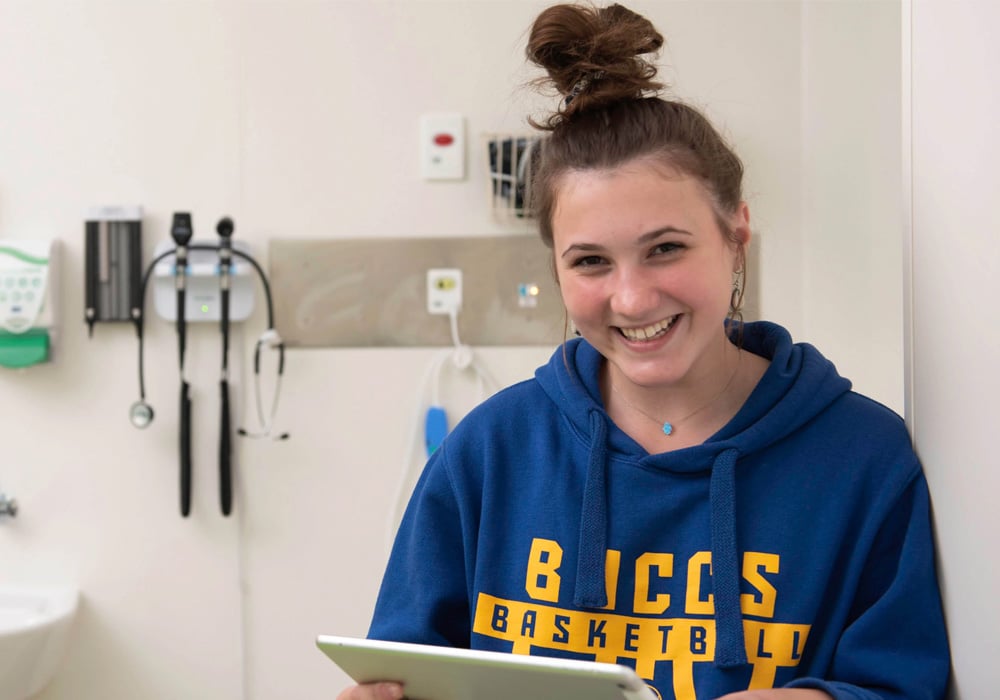The Infectious Disease Implementation Research team is developing and implementing better ways to observe and evaluate the effectiveness of public health programs, including optimising treatment for both acute and complex diseases and exploring new strategies through disease modelling and analytics - providing real-world results that are immediately applicable.
The team uses a range of methods to conduct their research, including pragmatic and adaptive clinical trials, observational comparative effectiveness studies and data linkage studies, causal network and transmission modelling and learning health systems research.
Focusing on common and serious childhood infections such as gastroenteritis, serious bacterial infections and cystic fibrosis exacerbations, the Implementation Research team are looking at new and innovative clinical trial methods and analytic approaches for evaluating treatments. This includes examining their effectiveness by embedding research in the clinical settings they are intended to be used, and working on projects to gauge efficacy of new and existing preventions and treatments in a way that has never been done before in Australia.
Collaborating widely, the team works with clinicians, policy makers, epidemiologists, statisticians and importantly, community members, to help ensure their research is efficient, sustainable and responsive to clinical, community and policy needs. The team also work in close collaboration with other research groups around Australia, including the University of Sydney’s Health and Clinical Analytics Team, particularly to support many studies that are underway at sites outside of Western Australia.
Team Highlights
In 2019, the Implementation Reseatch team were successful in securing major funding for:
- Randomised controlled trial of mixed whole-cell/acellular pertussis vaccination versus acellular-only vaccination of infants (GNT1158722, NHMRC project grant, 2019-2023, $3.9million)
- Adaptive Trial of Messaging to Improve Vaccine Coverage (AuTOMATIC), (Ramaciotti Health investment grant, 2020-22, $280,000)
- Collaborative project 'Better health through better trials: a national network to develop and implement innovative clinical trials methodology'. (GNT1171422, NHMRC Centres of Research Excellence, 2019-2024, $2.4million)
The Implementation Research team shared its ideas and results to several audiences across a range of mediums, including:
- providing educational seminars to students, researchers and clinical trialists throughout Australia
- launching the Adaptive Health Intelligence website to optimise further collaborative opportunities
- holding consumer workshops for individuals living with cystic fibrosis and hepatitis C.
Team leader

BMBS DTMH GDipClinEpid PhD FRACP
Team members (15)

Danielle Darragh
Program Manager, Infectious Disease Implementation Research

Julie Marsh
Biostatistical Lead

Michael Dymock
Biostatistician, PhD Student

Nelly Newall
Clinical Trial Co-ordinator

Jessica Ramsay
Clinical Research Coordinator – Casual

Reena D’Souza
Project Manager

Kylie Rogers
Data Manager

Mitch Messer
Consumer Advisor

Charlie McLeod
Clinical Research Officer

Evelyn Tay
Biostatistician

Ariel Mace
PhD Student

Carly McCallum
Clinical Research Manager

Ada Parry
Cultural Advisor

Edward Pan
Statistical Programmer

George Salama
Clinical Trial Coordinator
Featured projects
AusVaxSafety
August 2020
Towards the establishment of the PREVAIL Centre, a Centre for PREcision in VAccine ImpLmentation at The Kids Research Institute Australia
Other projects
The ORVAC Trial - A phase IV, double-blind, randomised, placebo-controlled clinical trial to optimise the delivery of RV1 rotavirus vaccine to Northern Territory Aboriginal infants The NICE GUT Trial The Effect of SMS Reminders on Vaccine Hesitancy in New Parents Prediction of Causative Pathogen of Osteomyelitis Using Bayesian Network Modelling PIFA - Pertussis and Food allergy, a case-cohort study of the association between pertussis vaccination in infancy and the risk of IgE-mediated food allergy OPTIMUM: OPTimising IMmunisation Using Mixed schedules All Infectious Disease Implementation Research projects
